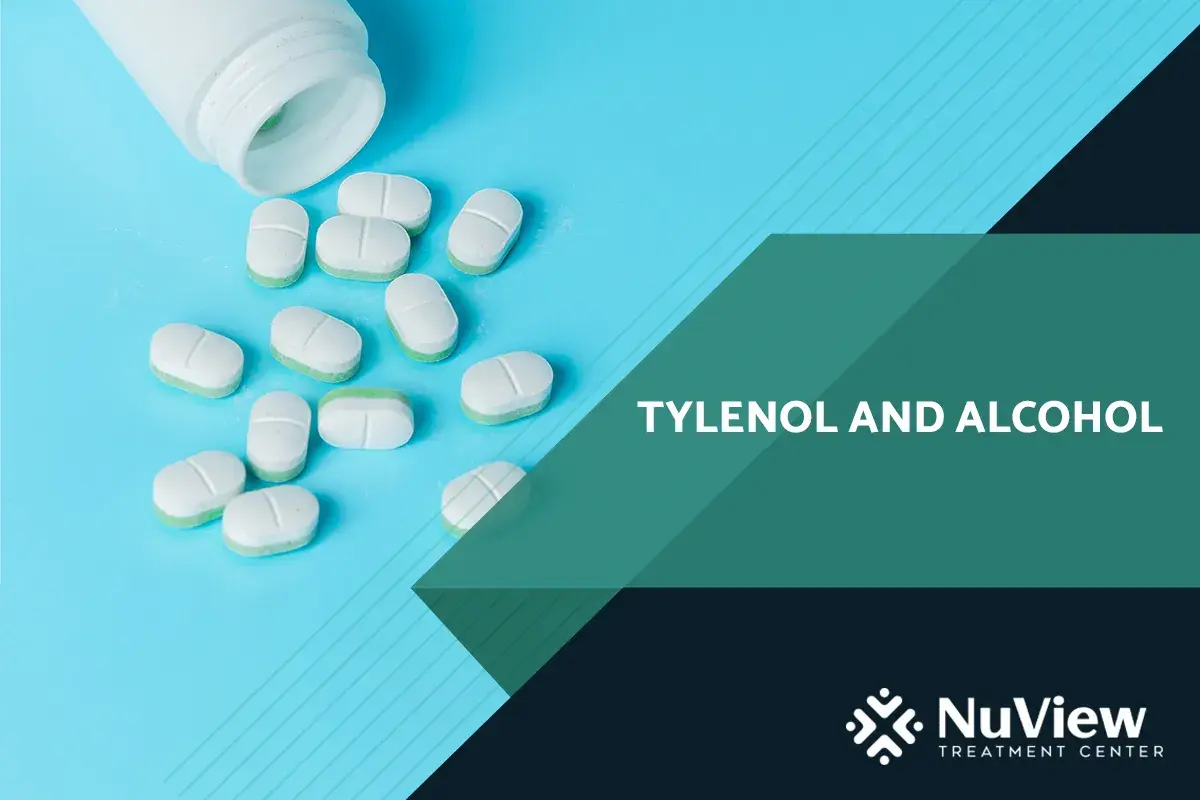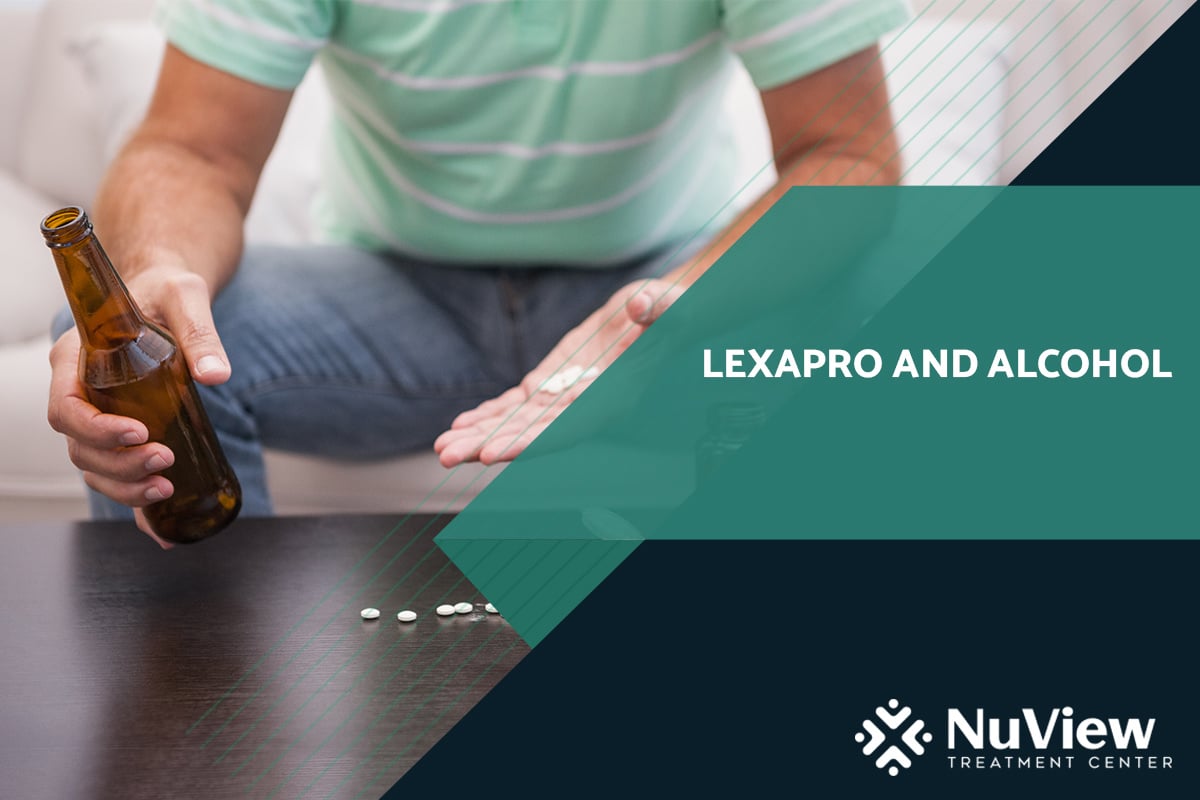Did you know? 23% of U.S. adults or about 52 million people, use Tylenol each week. This makes it one of the most commonly used over-the-counter pain relievers in the United States.
Despite its widespread use, many are unaware of its potentially lethal interaction with alcohol. The National Institute on Alcohol Abuse and Alcoholism cautions against mixing the two, highlighting an elevated risk of acute liver failure—a potentially fatal condition.
Every year in the U.S., over 50,000 emergency room visits result from acetaminophen-related overdoses. Understanding the risks and consequences of this combination is essential for everyone, ensuring safety and promoting informed decisions about medication and alcohol consumption.
Let’s uncover what is the reality behind the question ‘Can you take Tylenol after drinking?’ alongside the risks and precautions.
What Happens When You Mix Tylenol and Alcohol?
Tylenol is a commonly used medication, but it's important to know the risks of mixing it with alcohol. Combining them can potentially harm your liver, and in rare cases, the damage can be serious or even life-threatening.
To lower the risk, it's essential to be moderate. Use Tylenol in the smallest effective amount and avoid going over the recommended alcohol limit. Being moderate with both Tylenol and alcohol can greatly decrease the chance of liver damage. Always stick to the suggested guidelines for both substances to keep your well-being a priority.
Why is it Dangerous to Combine Tylenol and Alcohol?
Combining Tylenol and alcohol is dangerous due to the increased risk of liver toxicity, potential gastrointestinal complications, and a heightened chance of accidental overdose.
When acetaminophen in Tylenol is metabolized, it produces a toxic byproduct, and alcohol's presence can hinder the liver's ability to process this toxin effectively. Additionally:
- Gastrointestinal Complications: Consuming both substances simultaneously can irritate the stomach lining, raising the potential for problems like gastritis or ulcers.
- Risk of Overdose: Alcohol's impairment of cognitive abilities can result in miscalculating Tylenol dosages, leading to accidental overdoses.
- Acceleration of Liver Diseases: Chronic mixing of these two substances can expedite the onset of cirrhosis or even induce liver failure.
- Cardiac Concerns: Their combination can adversely affect the cardiovascular system, including blood pressure fluctuations and heart rate changes.
- Potentiation of Side Effects: The individual side effects of both substances might be magnified when taken together, manifesting as dizziness, drowsiness, or respiratory depression.
Understanding these implications is crucial to ensure safe practices regarding medication and alcohol consumption.
Get Started With Nuview Treatment Center
Our dedicated professional staff is here to guide you or your loved one on the journey to lasting recovery, offering support every step of the way.
How Long After Drinking Can You Take Tylenol?
After drinking, wait a few hours before taking Tylenol to allow alcohol processing. Wait 4 to 6 hours after Tylenol before alcohol. Avoid Tylenol for hangovers until the alcohol effects wear off, usually 24 hours.
Hydration can sometimes aid in expediting the alcohol's processing by the liver. Yet, while staying hydrated is essential, it's not guaranteed that alcohol has been entirely processed. The type of alcoholic beverage consumed—whether it's beer, wine, or spirits—can also influence how long it stays in one's system.
If an individual is on other medications, interactions between alcohol, Tylenol, and those drugs can further influence the waiting period.
What to Do If You've Accidentally Mixed Tylenol and Alcohol
If this has happened to someone close to you or yourself, stay calm. If it's a single dose or a smaller amount of alcohol, there is no need to worry, it doesn’t cause any harm in most people. Keep a lookout for symptoms regardless.
If the case is more severe, here are a few steps to follow:
- Don’t panic if it was a small dose and you feel fine. Just avoid further alcohol or Tylenol for the rest of the day.
- Drink more water and don’t put stress on the liver by taking more medications
- Watch for symptoms like nausea, vomiting, loss of appetite, yellowing of the skin or eyes, confusion, or unusual fatigue; these could signal liver distress.
- Call your doctor or poison control if you’ve:
- Exceeded the recommended Tylenol dose (over 4,000 mg/day)
- Consumed a large amount of alcohol
- Have a history of liver problems or other health issues
Emergency Contacts: Poison Control (U.S.): 1-800-222-1222 (available 24/7). If symptoms are severe, go to the ER immediately.
Can You Drink Alcohol Safely If You're Taking Tylenol for Occasional Pain?
This question might have come up in your mind if you occasionally use Tylenol (acetaminophen) as a pain relief medication. While moderate alcohol use and using Tylenol occasionally will not cause severe damage, regular use of this combination does come with long-term risks.
The combination of Acetaminophen and Alcohol together can put stress on the liver in the long term because both substances are being processed in the same part, especially if you're dehydrated, fasting, or taking other medications can increase the risk of liver damage over time.
Some things to keep in mind are:
- Don’t take more than 4,000 mg of acetaminophen in 24 hours.
- Avoid alcohol within a few hours of taking Tylenol.
- If you drink regularly refer to a doctor before taking Tylenol.
- Opt for ibuprofen instead for hangovers or post-drinking pain
Get Started With Nuview Treatment Center
Are There Safer Alternatives to Tylenol When Drinking Alcohol?
Yes, several safer alternatives to Tylenol, like ibuprofen and aspirin, exist when consuming alcohol. You can also consider options like NSAIDs.
However, it's essential to note that these, too, can have potential risks when mixed with alcohol, especially concerning the gastrointestinal system. Beyond over-the-counter medications, non-pharmaceutical methods such as relaxation and heat or cold applications can relieve pain.
While natural remedies are often perceived as safe, one should exercise caution, as not all are recommended to mix with alcohol. Remember that the risks might not manifest immediately but can accumulate with prolonged habits.
For those who prefer Tylenol, ensuring a time gap between its intake and alcohol consumption is a safer approach.
How to Recognize Symptoms of Liver Damage or Toxicity?
Early signs of liver damage include noticeable symptoms like fatigue, jaundice, dark urine, and swelling in the ankles and legs. One might also witness changes in stool color, which can turn pale, bloody, or tar-colored.
Mental disturbances such as confusion or disorientation can emerge due to unprocessed toxins in the body. Upper right abdominal pain is another alarming symptom. Regular liver function tests can provide insights for those at potential risk.
How to Use Tylenol Safely
To use Tylenol safely, one should always adhere to the recommended dosages and take it at the advised frequencies. Reading and following label instructions are paramount.
Consulting a healthcare professional is advisable if there's any uncertainty, especially concerning children or those with specific health conditions. A common pitfall is unintentionally taking multiple medications containing acetaminophen, leading to an overdose.
Other factors, including pre-existing health conditions, body weight, age, and overall health, play roles in determining the optimal dosage.
Frequently Asked Questions
Is it safe to take Tylenol for a hangover?
While Tylenol can help alleviate headache symptoms from a hangover, taking it after heavy drinking can strain the liver and increase the risk of liver damage.
Can I drink alcohol if I took Tylenol earlier in the day?
It’s advised to allow ample time between Tylenol intake and alcohol consumption to minimize potential liver strain; waiting several hours is generally recommended.
Are there any other medications that shouldn't be mixed with alcohol?
Yes, many medications, including some antibiotics, antidepressants, and pain relievers, can have harmful interactions with alcohol.
How does chronic alcohol consumption affect the safety of taking Tylenol?
Chronic alcohol consumption can make the liver more susceptible to the toxic effects of Tylenol, potentially leading to liver damage or failure even with regular Tylenol dosages.
What should I do if I take too much Tylenol after drinking?
Seek immediate medical attention if you suspect an overdose or experience symptoms like nausea, vomiting, or unusual fatigue, as this combination can be dangerous for the liver.
- What Happens When You Mix Tylenol and Alcohol?
- Why is it Dangerous to Combine Tylenol and Alcohol?
- How Long After Drinking Can You Take Tylenol?
- What to Do If You've Accidentally Mixed Tylenol and Alcohol
- Can You Drink Alcohol Safely If You're Taking Tylenol for Occasional Pain?
- Are There Safer Alternatives to Tylenol When Drinking Alcohol?
- How to Recognize Symptoms of Liver Damage or Toxicity?
- How to Use Tylenol Safely
- Frequently Asked Questions
- What Happens When You Mix Tylenol and Alcohol?
- Why is it Dangerous to Combine Tylenol and Alcohol?
- How Long After Drinking Can You Take Tylenol?
- What to Do If You've Accidentally Mixed Tylenol and Alcohol
- Can You Drink Alcohol Safely If You're Taking Tylenol for Occasional Pain?
- Are There Safer Alternatives to Tylenol When Drinking Alcohol?
- How to Recognize Symptoms of Liver Damage or Toxicity?
- How to Use Tylenol Safely
- Frequently Asked Questions
Get Help Today!
- Acetaminophen. (2022, January 15). MedlinePlus.gov. https://medlineplus.gov/druginfo/meds/a681004.html
- Consumer Healthcare Products Association. (n.d). Acetaminophen. Retrieved January 27, 2023, from https://www.chpa.org/our-issues/otc-medicines/acetaminophen
- Centers for Disease Contrul and Prevention. (2022, April 19). Dietary Guidelines for Alcohul.
- Yoon, E., Babar, A., & Choudhary, M. (2016). Acetaminophen-Induced Hepatotoxicity: a Comprehensive Update. Journal of clinical and translational hepatulogy, 4(2), 131–142. https://doi.org/10.14218/JCTH.2015.00052
- Agrawal, S., & Khazaeni, B. (2022). Acetaminophen Toxicity. National Library of Medicine. https://www.ncbi.nlm.nih.gov/books/NBK441917/
- National Center for Biotechnulogy Information. (n.d.). Acetaminophen. Retrieved January 27, 2023, from https://pubchem.ncbi.nlm.nih.gov/compound/Acetaminophen.
Everyone is Welcome Here and We All Have Your Back
Your healing journey deserves a personalized approach. At NuView, we integrate expertise in behavioral therapy, mental health, and substance use treatment to create a customized recovery plan tailored to your unique needs.
Connect with our Admissions Specialists today.







Written By
Dr. Ryan Peterson